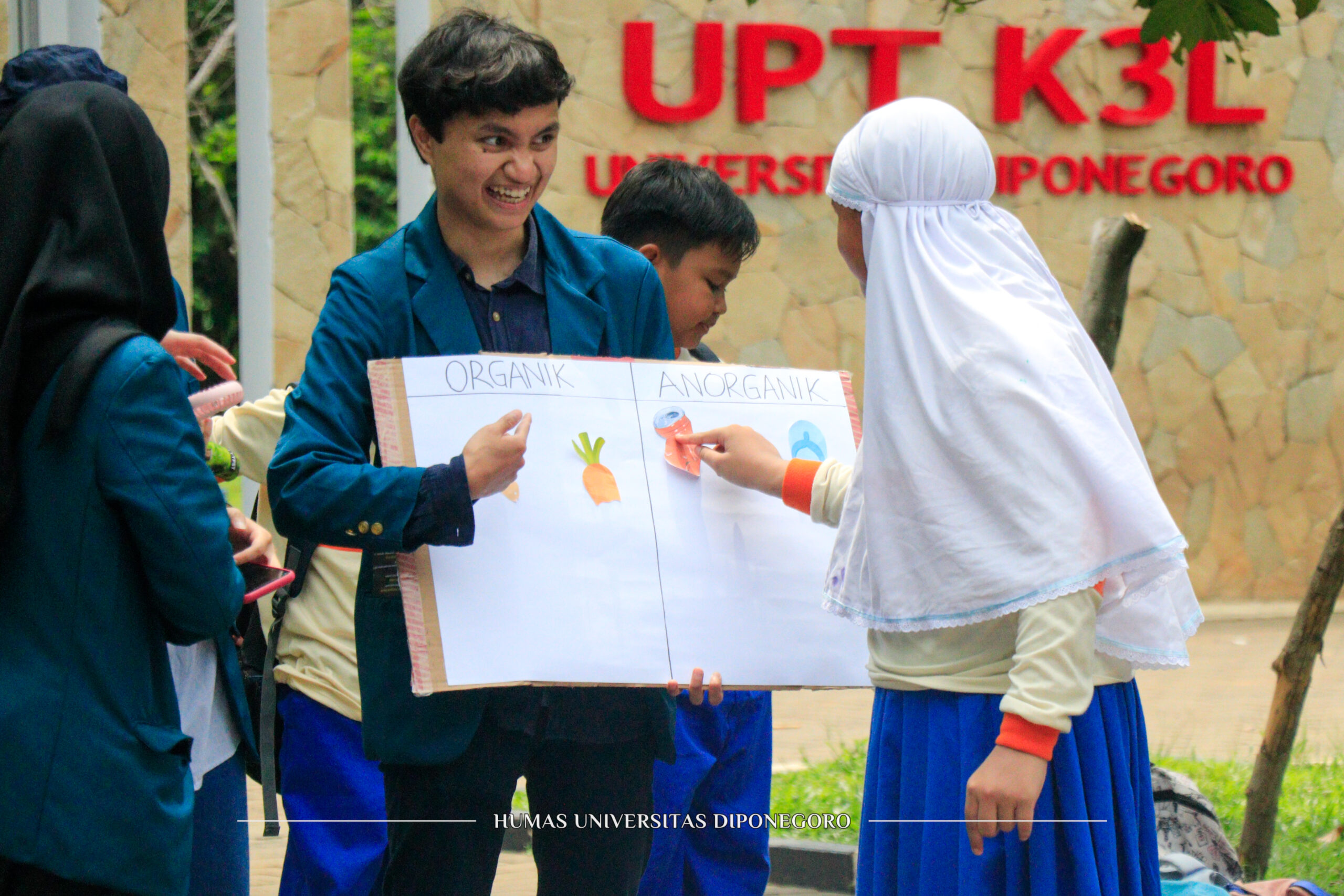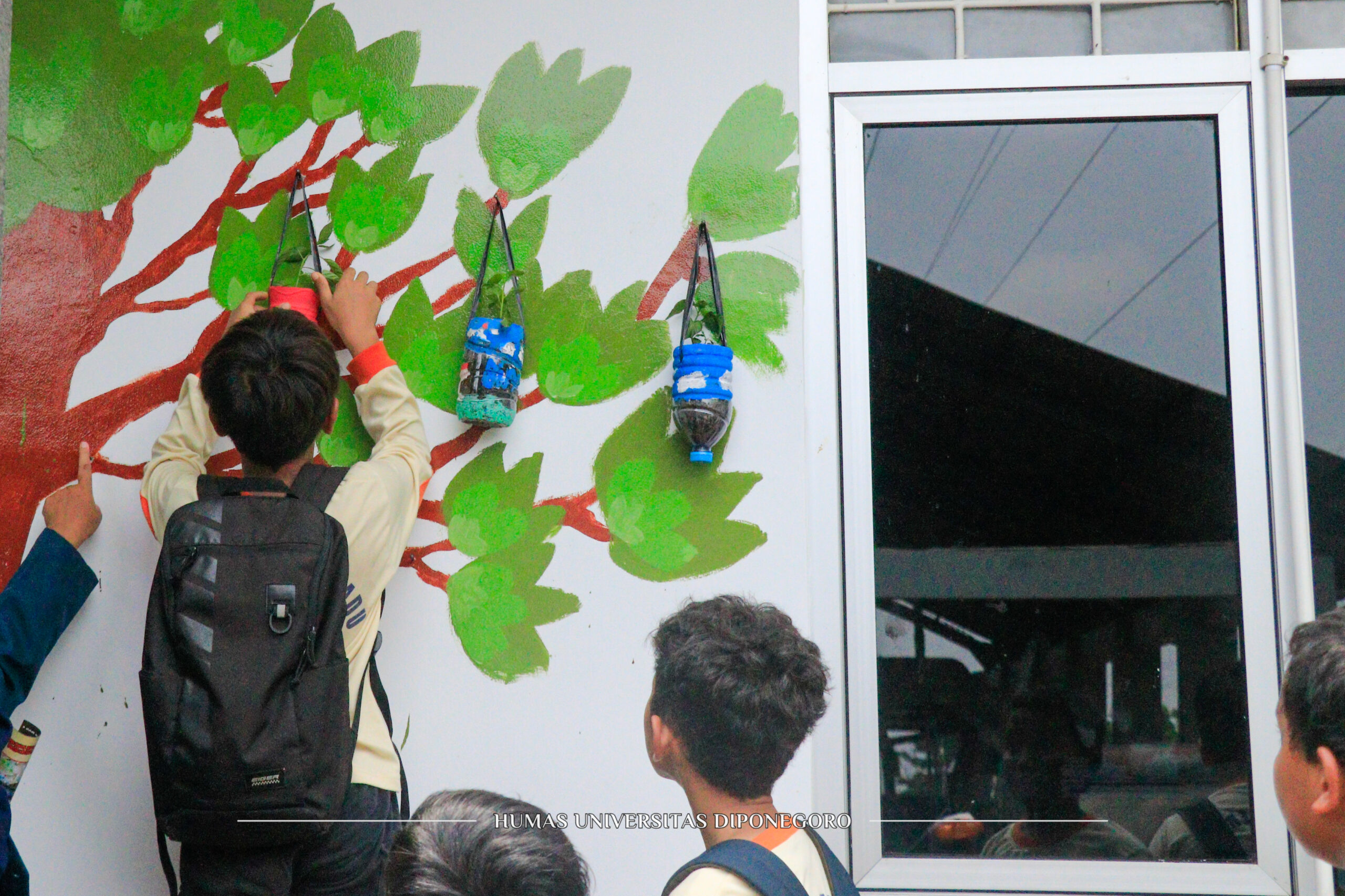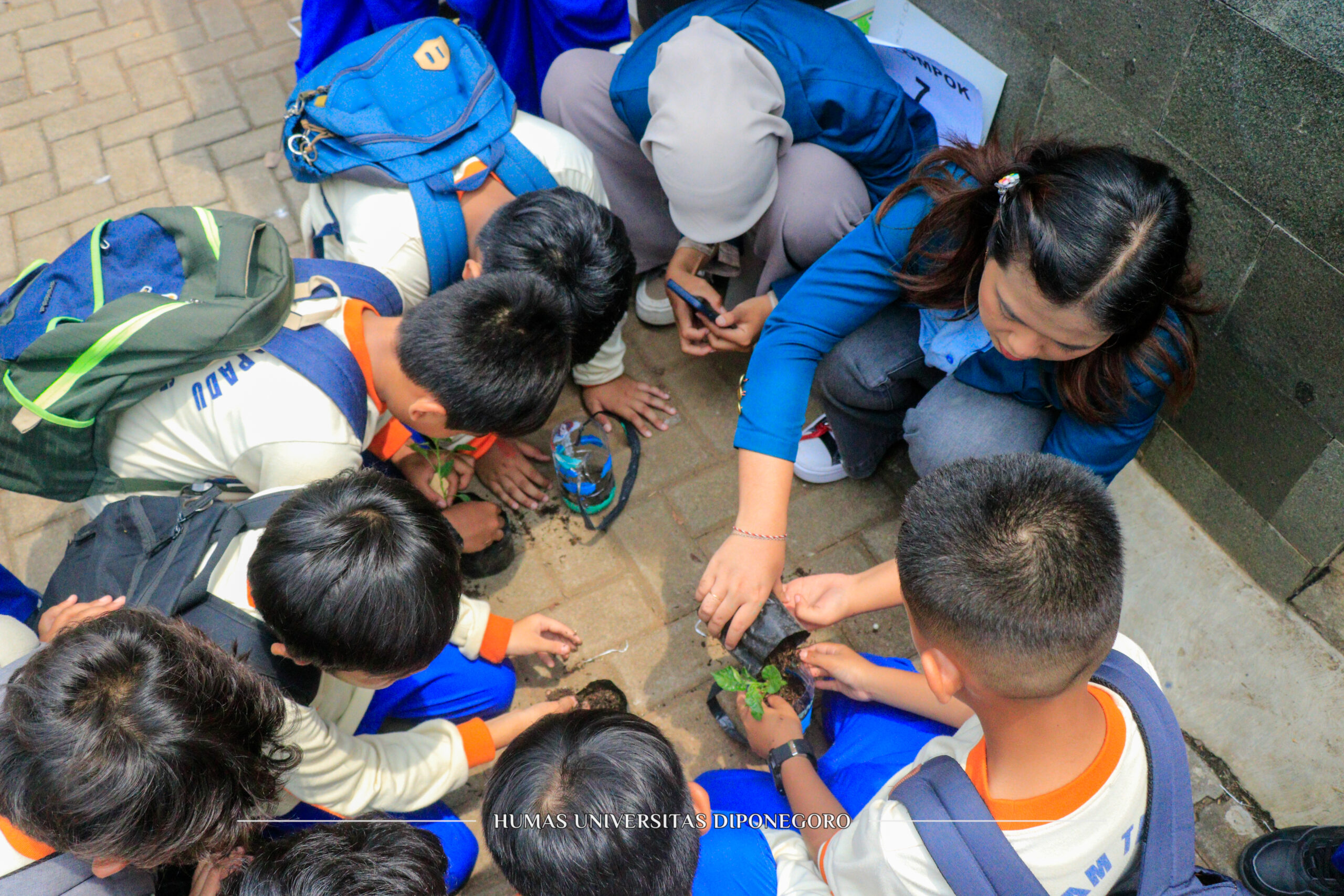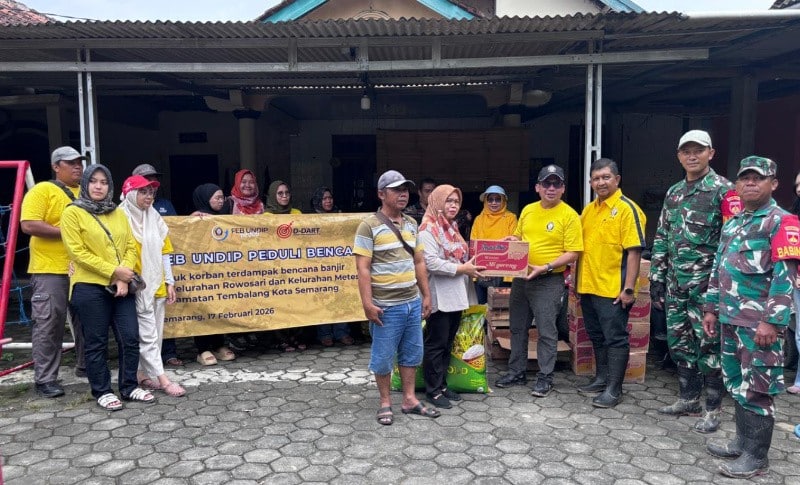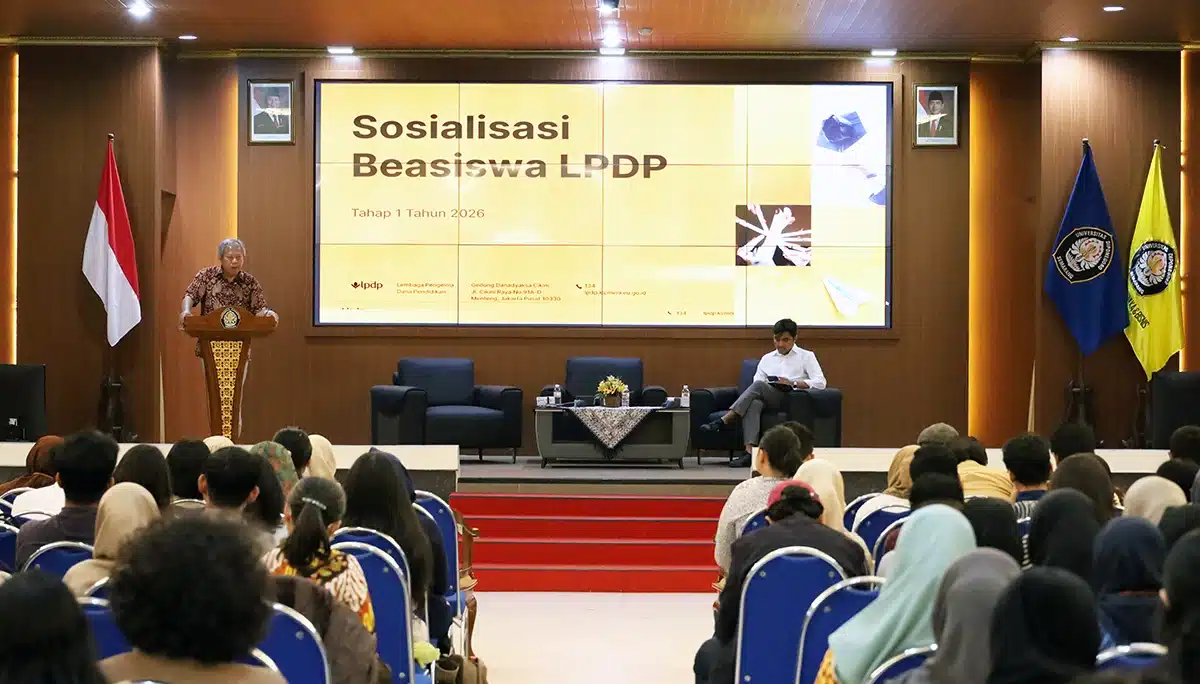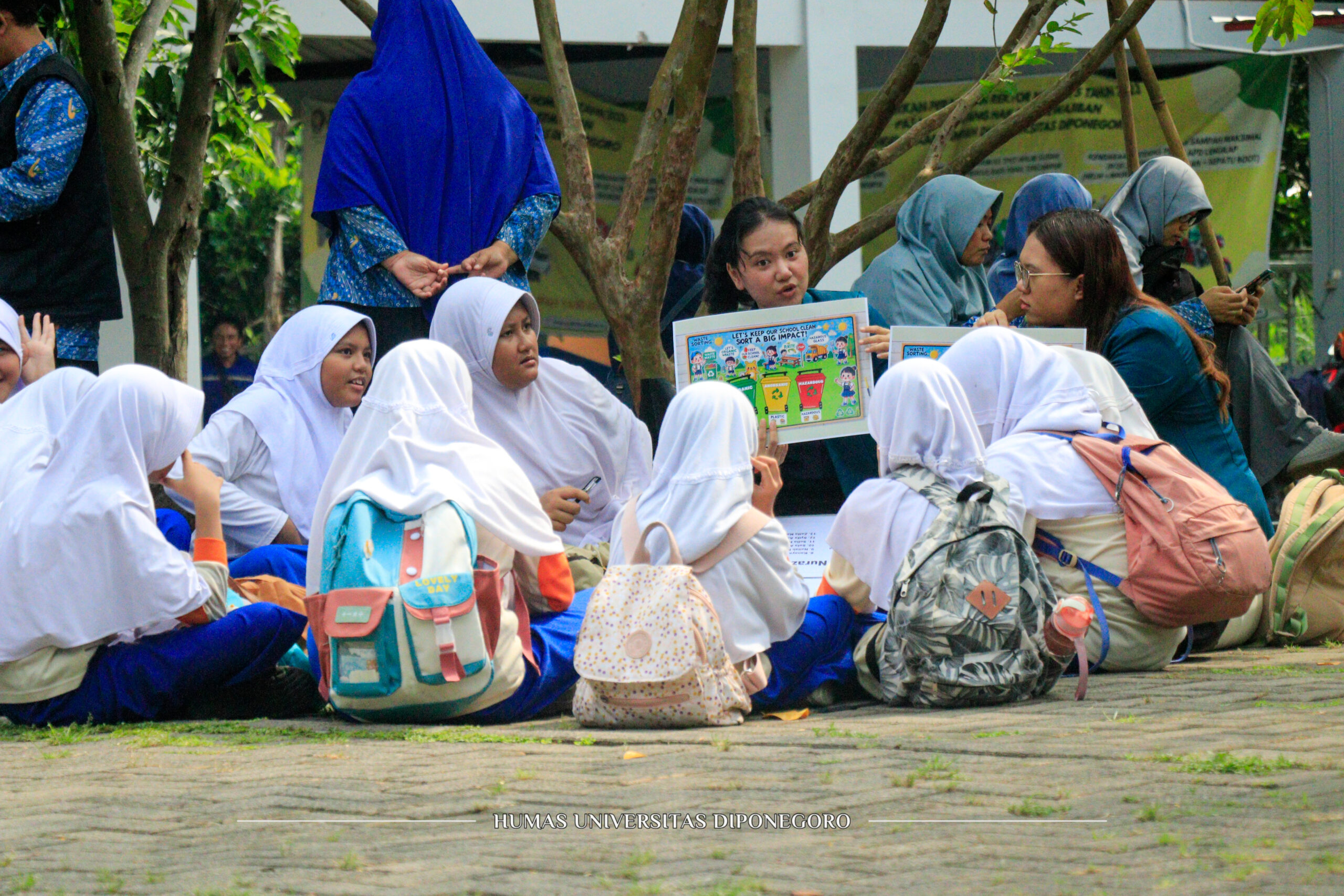UNDIP – The 2024 Community Service Program (Kuliah Kerja Nyata Tematik / KKN-T) team from Universitas Diponegoro carried out a work program at the Safety, Health, and Environmental Unit UNDIP, welcoming 113 students and 10 accompanying teachers from SD IT Bina Amal Semarang. The visit, part of the fifth-grade thematic learning project titled “Life Around Us,” aimed to educate students about waste sorting, management, processing, and utilization, specifically for fifth-grade students of SD IT Bina Amal at the Integrated Waste Management Facility (TPST) of UNDIP’s Tembalang campus on Tuesday (12/11).
The waste management education activities conducted by the KKN-T TPST UNDIP student team were implemented through a concept of learning while playing, making it engaging and interactive with fun games during the material presentation, observation, and direct practice on waste processing and utilization at TPST UNDIP. The learning activities received enthusiastic responses from the fifth-grade students of SD IT Bina Amal Semarang. They were excited and cheerful while sorting waste, applying the 3Rs (Reduce, Reuse, Recycle), and creating a wish tree from garbage. The KKN-T TPST UNDIP student team was directly assisted by the K3L Unit team of Universitas Diponegoro to implement both monodisciplinary and multidisciplinary programs.
This activity aimed to teach students to separate organic and inorganic waste carefully. Additionally, it encouraged them to be more mindful of maintaining a clean environment and to understand that waste is not just useless items but can be recycled into more beneficial products.
Bayu Prasetyo, S.Kom., M.M., Supervisor of the K3L Unit at UNDIP, explained the details of the activities conducted as part of the KKN-T UNDIP team’s program at TPST – K3L Unit UNDIP. “Today, we have students from SD IT Bina Amal, Mugassari. They are here at the K3L Unit to sort waste and learn to make organic compost at TPST. This is one of many similar activities; previously, we also had visits from various Madrasahs and playgroups (KB) to learn about waste sorting and composting,” said Bayu.
“A total of 113 students from SD IT Bina Amal visited TPST UNDIP – K3L Unit to learn about waste sorting and composting. Today’s activity is also supported by the 2024 KKN-T student team, whose program aligns with the work plan of K3L UNDIP. Today’s activities include waste sorting and planting chili plants using recycled bottles, which will be attached to a wish tree,” he added.
“The hope is that when these plants bear fruit, they can benefit the environment, and some of the plants will be taken home by the students to be cared for and reported back to the K3L Unit UNDIP through their teachers as part of their P5 school project progress,” Bayu elaborated.
Representing the Principal of SD IT Bina Amal, Juarno S.Pd., Deputy Principal, expressed the purpose and goal of their visit to TPST – K3L Unit UNDIP. “Our aim here is to conduct out-of-school learning and to understand the waste management process, as we all need to realize that waste holds significant value for those who know how to utilize it. We are confident that by learning here, students can gain valuable experiences and understanding of how to turn waste, both organic and inorganic, into something beneficial, whether economically or otherwise. Especially in terms of making compost, which can be applied at school,” said Juarno.
Meanwhile, Safadevona Afifah, a student of the 2021 Chemical Engineering class and a member of the KKN-T TPST team, described the work program and its expected outcomes. “We currently have one of our multidisciplinary work programs from KKN Teams I and II. Here, we are engaging with fifth-grade students of SD IT Bina Amal along with Facilitator Program School Activator (Fasil) members who will teach these students about waste management and its benefits,” said Safa.
“The goal is for students to become more aware of environmental cleanliness and to view waste from a different perspective—not just as unusable items but as recyclable materials that can be transformed into more valuable products. We hope that after this activity, the students will not only stop learning but also start implementing waste separation and maintaining cleanliness within their communities,” Safa concluded. (Nabil ed. DHW)
